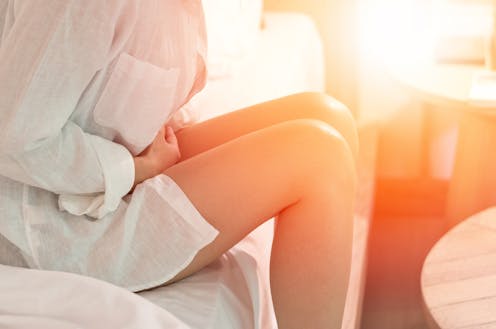Ovarian cancer is not a silent killer – recognizing its symptoms could help reduce misdiagnosis and late detection
- Written by Barbara Goff, Professor of Obstetrics and Gynecology, University of Washington
 Ovarian cancer is more likely to be cured with early diagnosis.Pornpak Khunatorn/iStock via Getty Images Plus
Ovarian cancer is more likely to be cured with early diagnosis.Pornpak Khunatorn/iStock via Getty Images PlusOvarian cancer is the most deadly of gynecologic tumors. Fewer than 40% of those diagnosed with ovarian cancer are cured, and approximately 12,810 people in the U.S. die from the disease every year.
For the past 25 years, scientists have...

